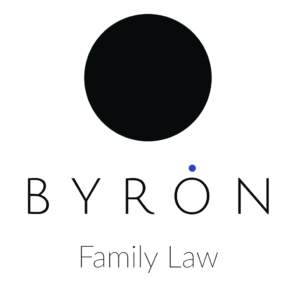A few words about
Domestic Violence
Domestic Violence & Family Law
A brief summary
You must tell the Court about any Domestic or Family Violence.
Family violence is a serious social issue that affects the whole family.
The Courts take family violence very seriously. Safety is a right.
Even if child does not directly witness the violence, they are often aware of it.
Domestic Violence Line
1800 656 463
Victims Services
NSW
1800 633 063
Aboriginal Contact Line
1800 019 123
1800RESPECT
Apprehended Violence Orders ("AVOs")
An Apprehended Domestic Violence Order relates to the protection of a person/s where a domestic relationship exists between the parties. Depending on your circumstances, certain conditions can be included in to prohibit your former partner from assaulting, harassing or intimidating you or protected persons (including children, other family members or persons the perpetrator has a domestic relationship with), as well as no longer allowing them to reside in the family home etc. Once such an order is made, the police will respond to and deal with breaches of it.
Do you have fears for your safety?
If you have fears for your safety or that of your children, regardless of whether you are attending the Family Court or Federal Circuit Court, you should contact the police. If your fears are immediate, ask for urgent help and tell the police if there are guns or other weapons involved. The police are equipped to respond quickly and appropriately. If you or your child/ren are experiencing domestic or family violence, or are at risk, contact a support service.
It is important for you to know that what your options are, to ensure the safety of you and/or your child/ren. At Byron Family Law we aim to approach all matters with a focus on trauma-informed practices, and prioritise our clients safety when navigating the legal system.
Family Violence & Parenting Orders
Family violence means :
- Violent, threatening or other behaviour by a person that coerces or controls a member of the person’s family (the family member), or causes the family member to be fearful; and
- A child is exposed to family violence if the child sees or hears family violence or otherwise experiences the effects of family violence.
Examples of behaviour that may constitute family violence include (but are not limited to) assault; stalking; repeated derogatory taunts; intentionally damaging or destroying property; intentionally causing death or injury to an animal; unreasonably denying the family member the financial autonomy; preventing the family member from making or keeping connections with his or her family, friends or culture.
Implications for Parenting Orders
Family violence orders can ensure that parties do not come into contact with each other except for:
- delivering or collecting a child who is spending time with a parent or other person (as provided by the Family Law Act), or
- enabling parties to attend family counselling, family dispute resolution, a family consultant meeting or other court events during family law proceedings.
The law regarding children’s arrangements is complex, particularly where allegations of domestic or family violence have been raised, so it is important to obtain expert family law advice.
Frequently Asked Questions
Yes.
You must tell the courts of any relevant family violence orders and file a copy of any family violence orders as they may affect the court orders, particularly orders about a child spending time with a parent or other person.
The courts must make sure that orders do not expose people to family violence.
If you are not legally represented, you may have a friend or support person attend a court conference or other court appointment with you. The extent of a support person’s involvement in the conference/appointment will be at the discretion of the registrar or family consultant conducting the conference/appointment.
If you have a friend or support person with you, they may sit at the back of the courtroom. Children and young people under 18 are not permitted in the courtroom.
During a hearing, parties who are not legally represented may be allowed to have a support person sit with them. The extent of the support person’s involvement in the hearing will be at the discretion of the judicial officer.
Types of situations
Examples of situations that may constitute a child being exposed to family violence include (but are not limited to) the child:
- overhearing threats of death or personal injury by a member of the child’s family towards another member of the child’s family;
- seeing or hearing an assault of a member of the child’s family by another member of the child’s family;
- comforting or providing assistance to a member of the child’s family who has been assaulted by another member of the child’s family;
- cleaning up a site after a member of the child’s family has intentionally damaged property of another member of the child’s family; or
- being present when police or ambulance officers attend an incident involving the assault of a member of the child’s family by another member of the child’s family.
If you have any fears about attending a court appointment at the same time or in the same room as your former partner, you can tell the Court you are attending.
There are safe rooms available in many registries and provision can sometimes be made for separate entry and exit points.
You may alternatively be able to attend by phone or by video.
Safety measures vary in registries, so discuss your options with a lawyer, or call the Courts directly on 1300 352 000.
If there is a current enforceable Apprehended Violence Order (AVO) in place and you believe the defendant breaches one of the conditions. Report this breach to your local Police for investigation and possible charges if there is sufficient evidence.
